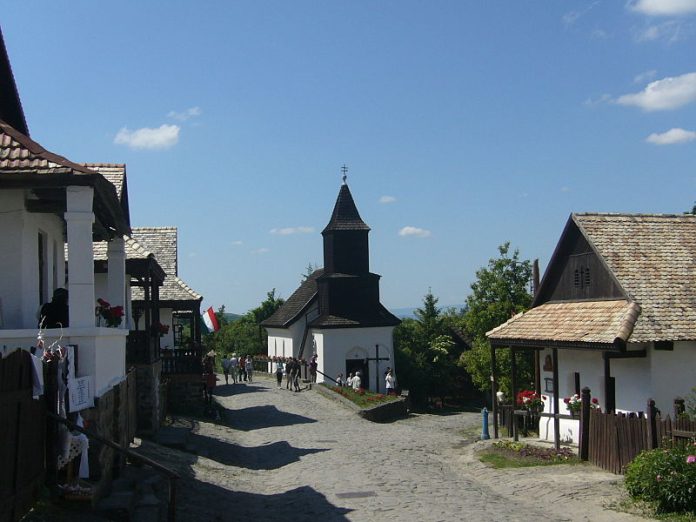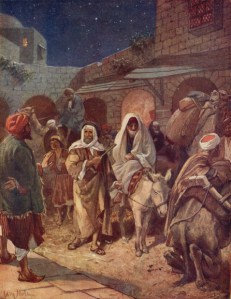
Our society is fragmenting, a tragic process accelerated of late, and it is incumbent on us to maintain some level of social cohesion, to reflect on what it means to ‘belong’ to any given society, and whether it be worth it do so. What is a Canadian, a Catholic, or even a member of your own family?
We may begin with a definition: A society is a group of persons bound together organically by a principle of unity that goes beyond each one of them. (CCC, 1880)
That ‘principle of unity’ – what holds it all together – is itself comprised of the end of the society, and the means to attain this end:
Each community is defined by its purpose and consequently obeys specific rules. (CCC, 1881)
One may take any number of examples, from the most stable and enduring of societies – countries, nations, empires, and the Church herself – all the way to the most transient – a game of football, a group waiting for a bus, a choir for Mass.
Each society has a purpose or end, and means of attaining that end. Everyone in that society must agree, in the main, to both of these. Anything else leads to disintegration and dissolution. If the purpose of a choir is to add beauty and delight, well and good. If the means to attain that is to sing Byrd’s Mass in Three Voices, all to the better. If one person decides in media rei to launch into Mozart’s Ave Verum, well, chaos ensues. The same, analogously, would occur if someone should up to a hockey game with a basketball and court shoes.
The two most essential societies are the state – the most public – and the family – the most private, with any number of intermediary private and public associations between these two. Each has an end, and laws and customs to attain this end, which is summed up in the ‘common good’, defined as the ‘sum total of conditions which allow people, either as groups or as individuals, to reach their fulfilment more fully and more easily’ (CCC, 1905).
The larger and more diffuse the society, the more room there is – or should be – for tolerating different points of view, purposes, means and ends. As Saint Thomas puts it, the law cannot forbid all vices, for not everyone in the country, province, village or any society is at the same level of virtue, and one cannot impose upon the vicious what is amenable to the virtuous, without provoking worse disorders (cf., I-II.96.2).
More intentional societies can, and should, be more unified and purposeful, such as, say, a traditional Carmelite monastery, where anyone admitted presumably wants to achieve holiness, and adopt their means of achieving this – daily choir, Mass, the rule, prayer, and so on.
The same holds for families, which derive from marriage, which in turn results from one’s act of the will in choosing a spouse compatible with one’s own aim in life. Much depends upon this choice which is why, in the Church’s sacramental economy and Christ’s salvific will, the marital bond is irrevocable and indissoluble. Spouses, to maintain the family, must wake up each day willing what they willed on their wedding day, by the grace of God, until death do them part. Sadly, as we recently wrote, most marriages end in divorce.
And that’s now happening in society at large, for we no longer ‘hold the same truths, nor do we ‘will the same thing’. By ‘thing’, I mean the essential thing, the principle of unity that holds the society together. We can debate all day long about safety, drugs, covid, education, abortion, suicide and gender – but if we are no longer discussing from common shared non-negotiable principles, then it’s more or less pointless, and bound to fall apart.
The only real source of these shared principles is Judeo-Christian revelation: the Ten Commandments, the transcendent and inviolable dignity of the human person, made in God’s image, male and female, the sacredness of sex and marriage, private property as requisite for the family, and fundamental rights and freedoms that flow therefrom. Once these are cast aside, what’s holding it all together?
Today’s Office has an excerpt from the early post-apostolic ‘Letter to Diognetus’, on the role of Christians in the world: As the author says, To speak in general terms, we may say that the Christian is to the world what the soul is to the body.
What happens to society without Christianity, is what happens to a body without a soul. We don’t really notice the soul, until it’s going, and gone. As the author goes on to say:
And yet there is something extraordinary about their lives. They live in their own countries as though they were only passing through. They play their full role as citizens, but labour under all the disabilities of aliens. Any country can be their homeland, but for them their homeland, wherever it may be, is a foreign country. Like others, they marry and have children, but they do not expose them. They share their meals, but not their wives. They live in the flesh, but they are not governed by the desires of the flesh. They pass their days upon earth, but they are citizens of heaven. Obedient to the laws, they yet live on a level that transcends the law.
The only means to heaven is Christ, the way, the truth and the life – outside of Him and His Church, there is no life, and no salvation. All transient societies – that is, every society in this world, from the state to the family and everything in-between – should be ordered to this end and purpose, and any society that is not ‘of Christ’, certainly any that is ‘anti-Christ’ – is doomed to destruction. There are only two ends, heaven or hell, Christ or the Devil, and the choice is ours to make.
The tendency, perhaps we may call in a temptation, is for Christians to secede here and now and go our separate ways, and there is some truth to this. For how do make forge friendship and common purpose with those who believe in the murder of the unborn and innocent and the sexualization and mutilation of children?
It is natural, and good, even necessary, to gather amongst those of like mind and heart, as the force of evil waxes stronger. There is strength, spiritual and otherwise, in numbers.
But we should also keep in mind that on this earthly pilgrimage the wheat and the tares are mixed, even within our own hearts. All it takes is an act of metanoia – change of mind, conversion, repentance – to go from the darkness to light. We Christians must run like sparks amongst the stubble (Wisdom 2:7), and be blameless and innocent, children of God without blemish in the midst of a crooked and perverse generation, among whom you shine as lights in the world (Philippians 2:15), bearing witness to the truth in whatever society we find ourselves, and so lead many others, we may hope, to the Truth.
Only in the end will God render that final and irrevocable judgement on all souls, and the choice each one has made, for good or evil, on which our eternity depends.











